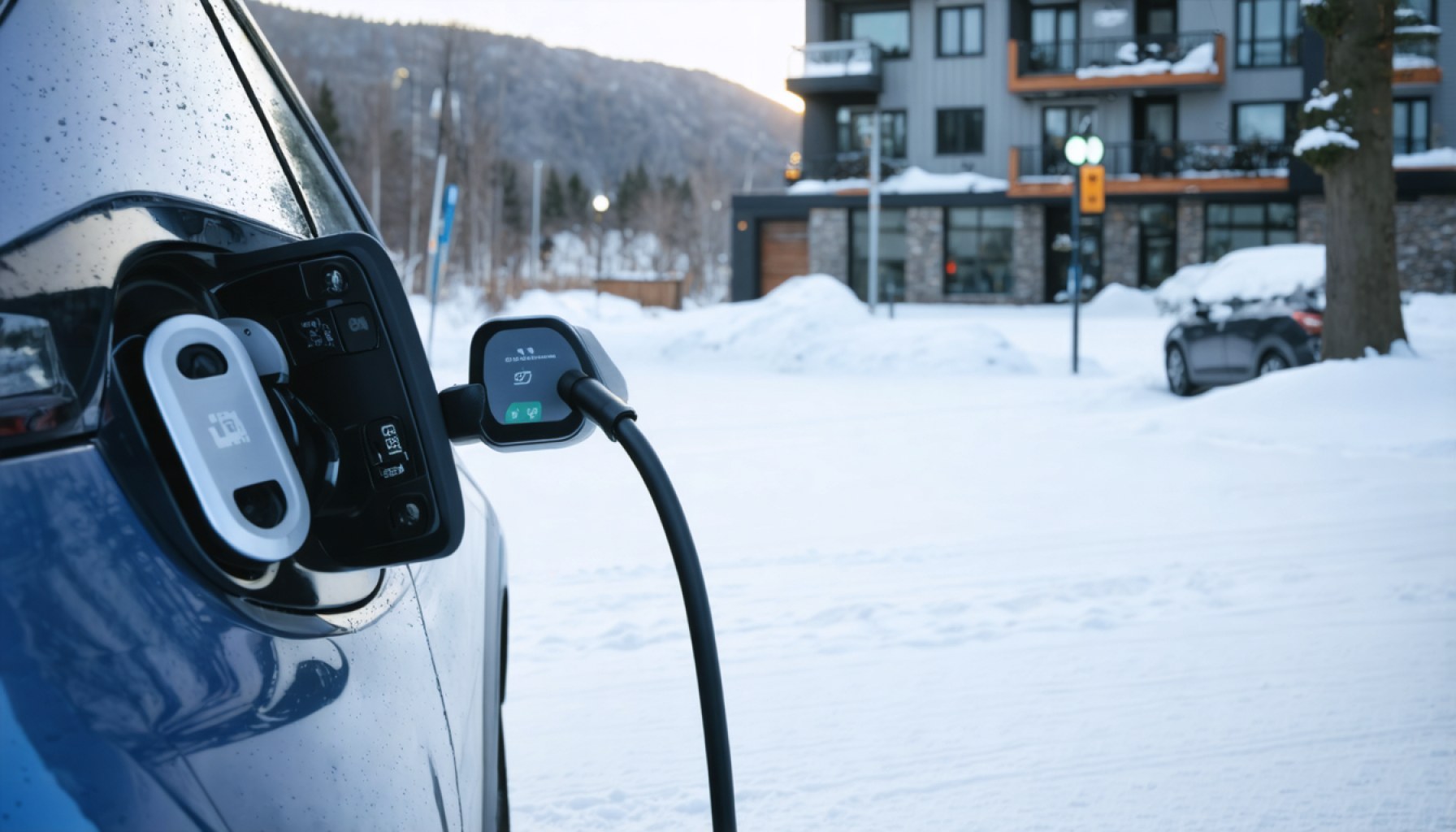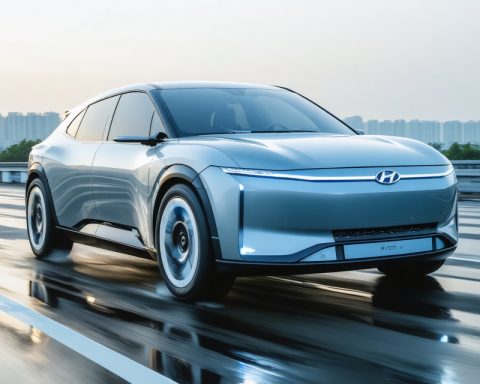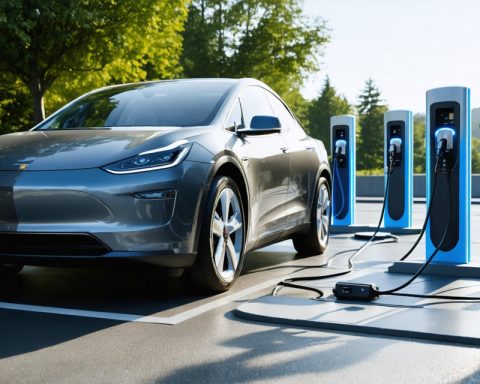- Quebec reinvigorates its Roulez Vert program by reintroducing zero-emission vehicle (ZEV) rebates, offering up to Cdn $4,000 starting April 1.
- ZEV sales reached an unprecedented 42% of all vehicle sales in Q4 2024, but this figure dropped when fiscal incentives temporarily halted.
- Quebec plans to phase out rebates by 2027, creating a sense of urgency for buyers to leverage these incentives.
- An annual fee for electric and plug-in hybrid vehicles will be introduced to offset reduced fuel tax revenue and adjust for cost-of-living increases from 2027.
- ZEVs will no longer have free access to bridges and ferries, with revenue generation expected to reach $200 million annually by 2030.
- Luxury vehicle tax changes will apply to vehicles over $62,500, including ZEVs starting in 2027.
- Quebec’s strategy mixes incentives with fiscal adjustments, reflecting a shift towards sustainable infrastructure financing.
Quebec’s latest budget unveils a narrative of electric mobility shaped by incentives and deterrents, as it seeks to balance its environmental ambitions with fiscal imperatives. Reviving the Roulez Vert program, Quebec promises to resume zero-emission vehicle (ZEV) rebates, offering up to Cdn $4,000 to eager buyers from April 1. This decision follows a strategic pause and a recalibration that also includes a $125 annual fee for electric vehicle owners. As spring breathes new life into Quebec’s streets, the province’s plans intertwine hope with caution.
In an electric car market electrified by soaring demand and unprecedented adoption, the fourth quarter of 2024 saw ZEVs claiming a staggering 42 percent of all vehicle sales—unquestionably the highest penetration rate recorded in Canada. Yet, this meteoric rise was not without its stumbles. As the incentives dimmed on January 1, so too did the ZEV sales percentage, slipping sharply as fiscal programs dried up.
With rebates back in play, Quebec aims to rekindle enthusiasm. However, the horizon offers no permanence. By 2026, the rebates will be halved, and by 2027, they will vanish, lending an air of urgency to prospective buyers looking to capitalize on governmental support before the well runs dry.
Yet, not everything is a windfall for Quebec’s eco-consumers. To recoup revenue once sourced from dwindling fuel taxes, the province rolls out an annual levy for those driving forward with electrics, alongside a fee for plug-in hybrids. These measures, set to inflate with the cost of living starting in 2027, seek to remind ZEV owners of their part in sustaining the infrastructure they so frequently traverse.
Simultaneously, the province dismantles previous free rides—literally. No longer will ZEVs enjoy gratis access to bridges and ferries, leveling a field once tilted in favor of green wheels. Through these steps, the government anticipates garnering nearly $200 million annually by 2030.
Additionally, Quebec reassesses its luxury vehicle tax, aligning it more prudently with today’s car market. While cars priced above $62,500 will soon face this tax, previously sheltered ZEVs will be ushered under its umbrella from 2027 onwards, reshaping the financial fabric for buyers of high-end electrics.
Quebec’s unfolding strategy underscores an evolving viewpoint, where incentives initially seduce but ultimately step aside for sustainability. As drivers steer toward an electrified future, they do so on a road meticulously paved with both encouragement and inevitabilities. The takeaway margin: Quebec isn’t just recharging its vehicles—it’s redefining how the province powers forward into tomorrow.
Unlocking Electric Mobility: Quebec’s Strategic Shift and How It Impacts You
Understanding Quebec’s Evolving Electric Vehicle Landscape
Quebec’s latest budget strives to balance ambitious environmental goals with economic realities, carving a nuanced strategy for electric mobility. This strategic move, shaped by a blend of incentives and deterrents, seeks to drive both consumer adoption and fiscal sustainability for electric vehicles (EVs).
Key Components of Quebec’s Electric Mobility Plan
1. Revival of the Roulez Vert Program:
– Quebec reinstates rebates up to CAD $4,000 for zero-emission vehicle (ZEV) buyers starting April 1.
– Rebates are set to decrease by half in 2026 and vanish by 2027, urging prospective buyers to act fast.
2. Introduction of Annual Fees for ZEVs:
– A $125 annual levy for electric vehicle owners and a similar fee for plug-in hybrids.
– These fees will increase with the cost of living starting in 2027, reflecting a move to recuperate lost fuel tax revenues.
3. Adjustment of Infrastructure Perks:
– ZEVs will no longer enjoy free access to bridges and ferries, leveling the playing field in terms of infrastructure use and maintenance charges.
4. Luxury Vehicle Tax Reevaluation:
– The luxury tax now applies to any vehicle costing over $62,500, including ZEVs from 2027, impacting higher-end electric car buyers.
5. Financial Projections:
– The government projects nearly $200 million revenue annually by 2030 through these adjustments.
Pressing Questions and What They Mean for Consumers
– What does the ZEV rebate cut-off mean for prospective buyers?
– Buyers should consider purchasing ZEVs before 2026 to maximize financial incentives.
– How will the annual fees impact electric vehicle ownership costs?
– The additional fees will incrementally increase the total cost of ownership, emphasizing the importance of calculating long-term expenses.
– What are the impacts of removing infrastructure perks for ZEVs?
– The removal adds to the operational costs of owning an electric vehicle, affecting daily commuting expenses and reducing previous benefits.
Industry Trends and Insights
– Soaring Demand for ZEVs:
– Quebec has witnessed unprecedented growth, with ZEVs making up 42% of vehicle sales in Q4 2024. This highlights a robust market driven by environmental consciousness and fiscal incentives.
– Sustainability Challenges:
– Quebec’s strategic shift suggests an evolving narrative from incentives to sustainable, self-funded infrastructure, with broader implications for EV adoption.
– Potential Market Impact:
– A decrease in rebates might slow ZEV sales post-2026, possibly creating a dip in market penetration unless counterbalanced by technological advancements or further policy shifts.
Recommendations for Quebec’s Electric Vehicle Consumers
1. Capitalizing on Current Rebates:
– Prospective buyers should consider entering the market before the rebates start to decline to maximize savings.
2. Budgeting for Added Costs:
– Factor in upcoming annual fees and loss of free services to better plan the financial implications of electric vehicle ownership.
3. Exploring Technological Alternatives:
– Stay informed on advancements in vehicle technology and infrastructure that could offset costs, such as improved battery efficiency.
Real-World Use Cases of Electric Mobility
– Corporate Fleets: Businesses can leverage current rebates while preparing for tax modifications by restructuring their vehicle procurement strategies.
– Public Transport Adaptation: As individual incentives shift, public transport authorities can integrate electric solutions, benefiting from economies of scale.
For those eager to delve deeper into Quebec’s green initiatives, visit the official Quebec website.
By understanding these evolving dynamics, Quebecois consumers can make informed decisions about their electric vehicle purchases, contributing to a sustainable future while optimizing personal and financial benefits.














